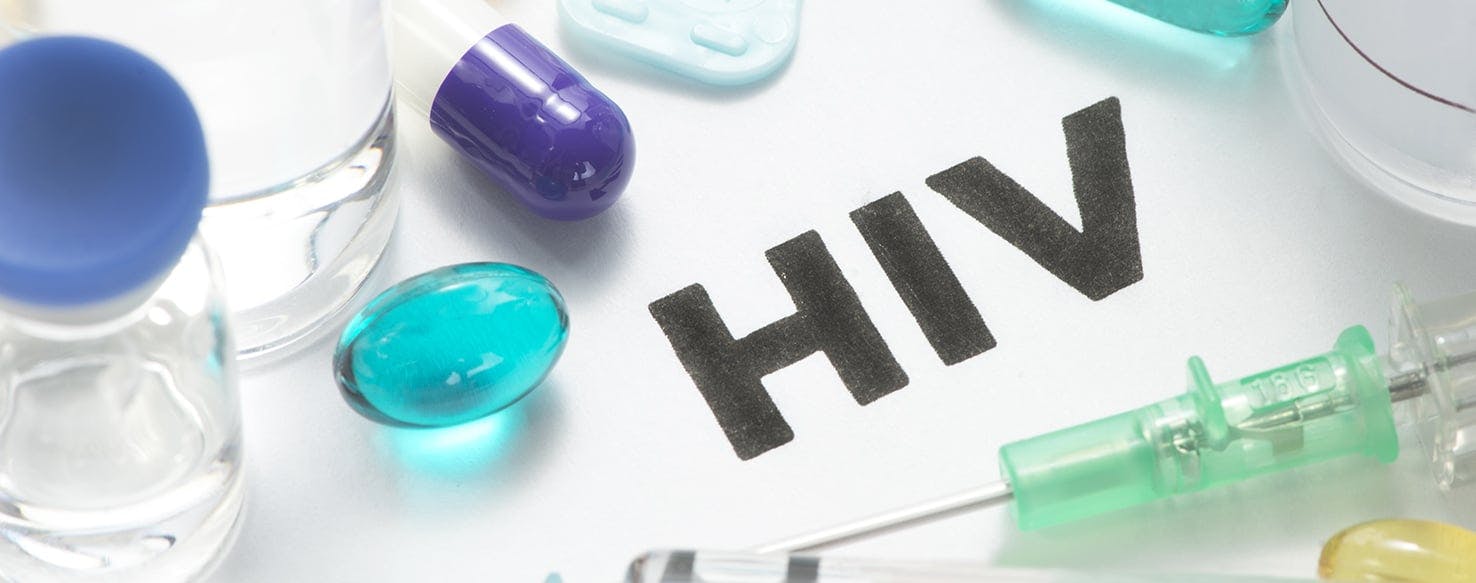
Save on pet insurance for your pet
You don't have to choose between your pet and your wallet when it comes to expensive vet visits. Prepare ahead of time for unexpected vet bills by finding the pawfect pet insurance.
For those who are potentially infected with Human Immunodeficiency Virus (HIV), a prompt diagnosis is crucial. Indeed, certain drugs (Post Exposure Prophylaxis or PEP) given within three days of exposure to HIV can stop the condition from developing.
For those already diagnosed, there are excellent antivirals available, which allow a person to lead a near normal life. However, there is a responsibility attached to the diagnosis, because as well as keeping well yourself, it's important to protect other people from passing on the infection.
But what about dogs? If a dog should lick sweat from an HIV-positive person (or even bite them!) is the dog at risk?
Can Dogs Get Hiv?
NO!
The clue is in the name "Human" Immunodeficiency Virus. This is a relatively delicate virus that is passed in body fluids between people. Outside of the body it is fragile and doesn't persist, whilst direct transfer from human to dog does NOT result in infection for the latter.
Does My Dog Have Hiv?
Most people with HIV aren't ill. Where HIV does get the upper hand, it then attacks the immune system. Whilst dogs don't get HIV, they can suffer from conditions that affect the immune system.
Symptoms to be alert for include:
-
Extreme tiredness
-
Reluctance to exercise
-
Poor appetite
-
Sickness or diarrhea
-
Fever
-
Cough
-
Sneezing
The causes of the symptoms are many and varied, including:
-
Overwhelming infections
It's important to have a vet examine the dog. They will draw up a problem list and decide on the tests needed to make a diagnosis. For more detail on what these might be, follow the links above.
How Do I Treat My Dog's Condition?
HIV is a retrovirus. It is important to note that currently there is no strain or type of retroviral infection has been linked to dogs, and canids cannot become infected by the human retrovirus.
Therefore, suspicious symptoms in a dog must be due to another cause. Many of these conditions are potentially life-threatening if left untreated, making it crucial to seek veterinary assistance.
Examples of appropriate treatments are:
-
Autoimmune disease: Immunosuppressive medications such as steroids, to switch off the 'auto-destruction' of cells. A blood transfusion might be necessary.
-
Pneumonia : Aggressive antibiotic therapy
-
Rheumatoid Arthritis : Anti-inflammatory medications
-
Flu: Supportive care including intravenous fluids and antitussives
Recovery times vary depending on the severity of the condition and how quickly treatment was started. For more information refer to the links above where you can also ask advice from our in-house vet.
How is HIV Similar in Dogs and Humans?
In truth, dogs can't acquire HIV. But what they can develop is sickness when the immune system is overwhelmed or causes 'self-harm' to body tissue. These signs may mimic the symptoms of HIV disease.
How is HIV Different in Dogs and Humans?
Although the symptoms may point to HIV, if the patient is a dog then the diagnosis lies elsewhere. It's important the dog has a full check up and blood tests, in order to identify the cause of the illness so that treatment can be targeted.
It is also important to know that dogs cannot transfer infection between people. This means that in the unlikely event that a dog bit an HIV positive person and then bit someone else, the possibility of transferring infection is negligible.
Case Study
Jasper the Labrador is a close companion to his owner, who is HIV positive. Recently Jasper has been off color, not interested in food, and unwilling to go for walks. His owner suddenly recalls how Jasper likes to lick him, and fears his sweat may have infected Jasper with HIV.
The vet examines Jasper and finds his gums are very pale. She runs blood tests which indicate Jasper is severely anemic. Further tests reveal Jasper's immune system is destroying his own red blood cells, which accounts for his symptoms.
Jasper is started on immunosuppressive doses of prednisone and given a blood transfusion. After several days intensive care he is strong enough to go home. He continues high doses of steroids for six weeks. After this the dose is tapered down, until after another three months they are stopped altogether and happily Jasper remains well.
You may also like
